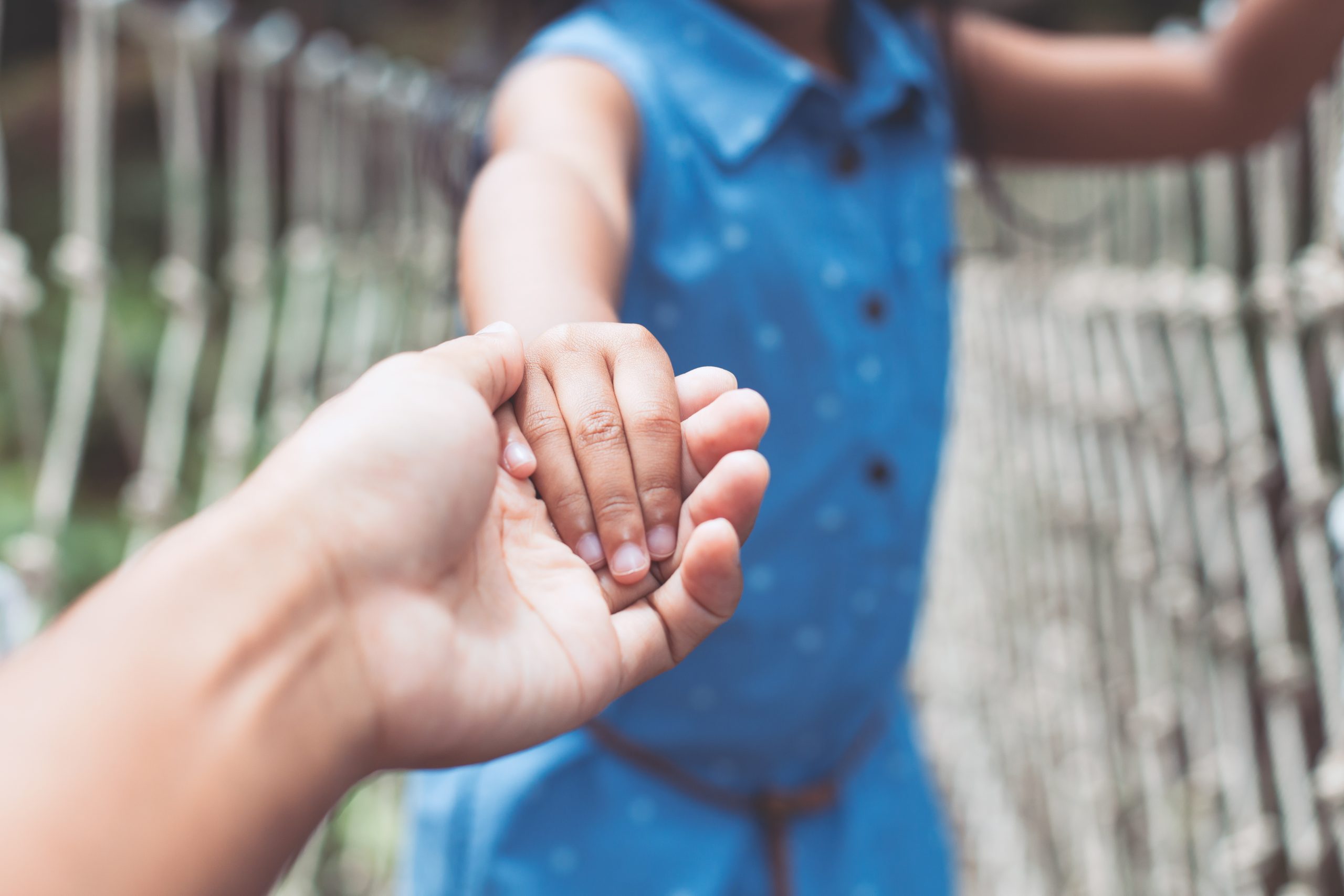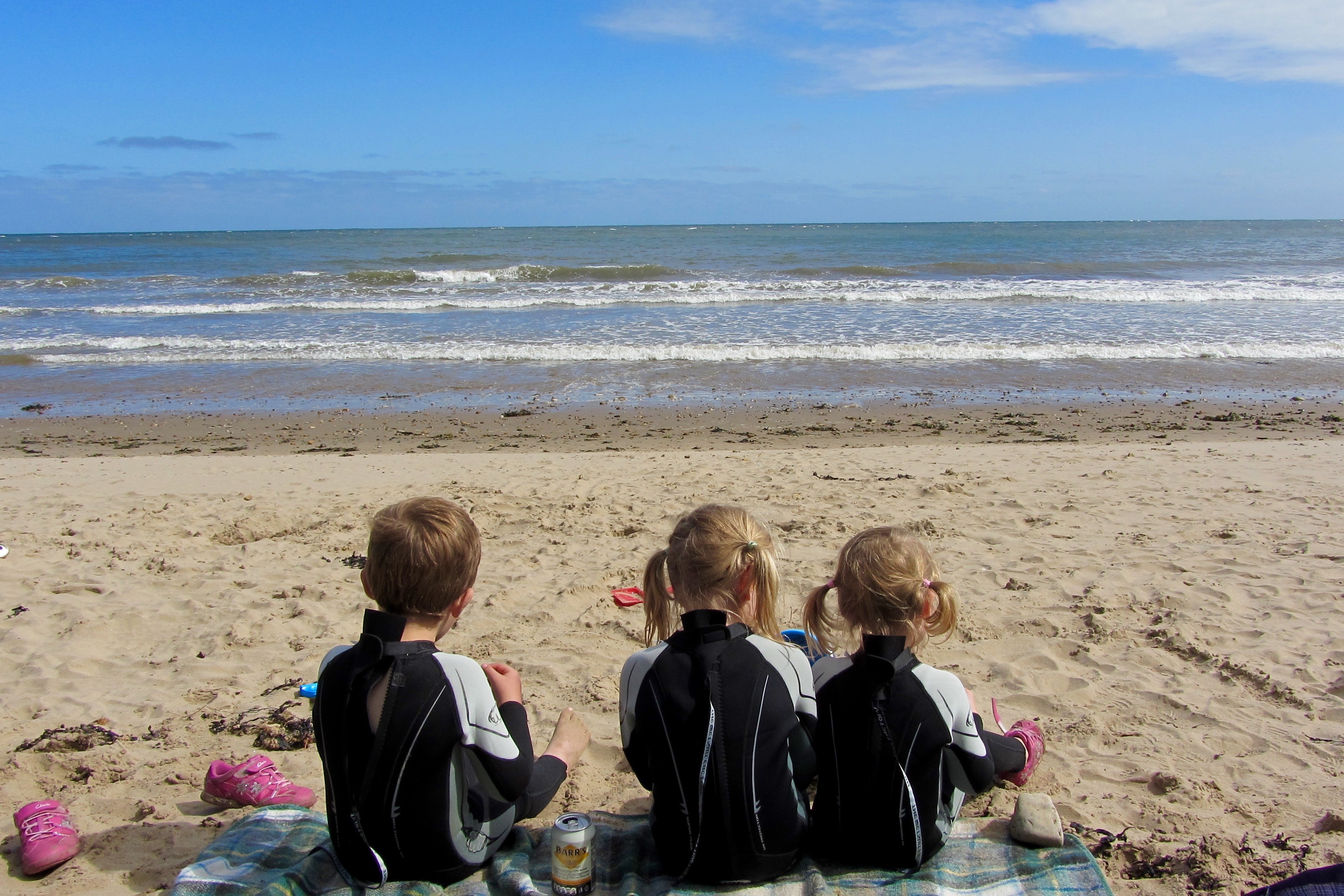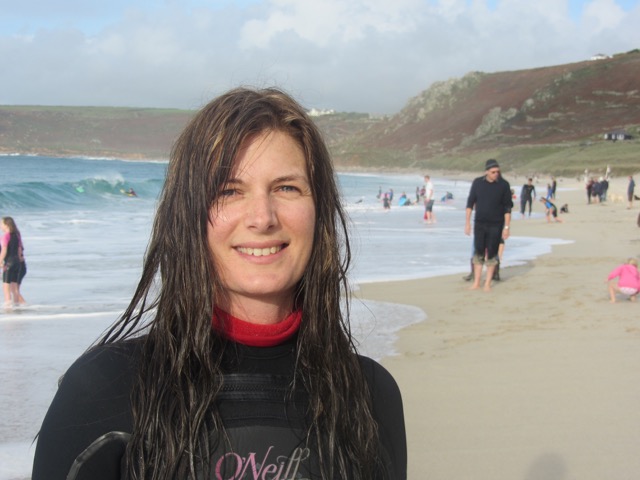Adopting a child: What I wish I'd been told
You can never be 100% prepared to adopt...

Parenting advice, hot topics, best buys and family finance tips delivered straight to your inbox.
You are now subscribed
Your newsletter sign-up was successful
Although adoption is an incredibly rewarding experience for both parents and children, it's also one for which you can't really be totally prepared.
Regina and her husband Andrew are adoptive parents to two teenage girls, Megan and Lily. Both of the girls were adopted in 2004 when they were four and five.
Helene, another adoptive parent, adopted her three children in 2012.
Here, both families open up about their experiences, and the factors of adoption they didn't know about until right before welcoming the children into their homes.
From the separation of siblings to the children's incredible fighting spirit, here's what they've learned from their own adoptions, and what they want other potential adoptive parents to know...
There's no upper age limit for adopting a child
According to GOV.UK, as long as you're aged 21 and over, you're eligible to adopt a child. However, age isn't the only criteria; the child must be aged 18 or under, and have never been married or in a civil partnership.
What also must be considered is the child's birth parents, who have to give their consent for the adoption unless they can't be found, are incapable of consenting (for example, if they have a disability), or if the child would be at risk if they weren't adopted.
Parenting advice, hot topics, best buys and family finance tips delivered straight to your inbox.
You have a say in which child/children you end up adopting
"We wanted to adopt up to three children, but we knew that if they all suffered from serious emotional and behavioural issues, we would also struggle," Helene recalls.
"Before finding our three little ones, we were presented with the high-level profiles of a couple of sibling groups (one two-sibling group and one three-sibling group) who we sadly decided we wouldn't be able to cope with."
Siblings don't always get to stay together

Sibling groups are sometimes split up when they can't find an adoptive family to take them together, so that's something to take into consideration when you're making a decision.
Adopting a child can happen so quickly
Adoption can be a lengthy process while you're waiting to be approved and meeting different children, but once both the prospective parents and the child choose each other, they can often move in together very quickly.
"Despite having to wait three years until we could adopt, once we met our girls and made the decision to adopt them, it happened very quickly. Just one week after meeting them, they moved in," said Regina.
You learn so much about yourself
"I discovered lots about myself as an adoptive parent that I would have never known or explored if I hadn't gone through the adoption process," explains Helene.
She continued, "During the adoption process, I got to explore how I was parented and how I would and wouldn't respond in different situations.
"I learnt about attachment (something I knew nothing about) and about how important it is in having meaningful relationships.
"Once the children arrived, I got to find out how resilient I am, as well as what my own emotional triggers are. I also learned how important my friends and family are, and just how lucky I have been."
Helene also found out that herself as an adoptive parent is most likely very different to how she would be as a birth mother.
She said, "Coming to the realisation that I am a much better adoptive parent than I would have been a birth made me understand that I have had to do far more introspection into myself.
"My capacity to love was also something I learned about myself; I am thoroughly in love with all three of my children and they bring me so much joy."

You can learn about their history after you've adopted them
For Regina, her daughters' troubled childhoods didn't immediately resonate with her until later on.
She explains, "We read our daughters' case files, but didn't really register everything that had happened in their lives until their behaviour signalled a disrupted childhood, and we took a look back over the paperwork.
"Before adopting them, we had seen one photograph of them, and didn't know very much about them. We knew briefly of their history, and at the time we thought 'Yes, that is awful', but we didn't really take it in or feel it because we didn't know them properly.
"As they're growing up, you can revisit their history and think 'That accounts for certain things'."
You can build a close network with other adopters
Helene said, "I have made some really close friends (other adopters) through the process of adopting my children.
"During the adoption process we attended a workshop where we met other adopters and learnt all about the kinds of needs adopted children often have.
"We met two couples who we kept in contact with during the first couple of years and still touch base with now. Since then we have been linked with a few ‘new adopters’ who have become close friends.
"In fact, we all took our kids trick or treating together this Halloween!"
Helene and Regina both agree that speaking with other adoptive parents helps with the adoption process.
'"I think that both being adopters gives you a close bond as you can talk to each other about things that non-adopters would find it hard to understand," said Helene.
For Regina, she wished she had had more contact with other parents going through the same process in the early days of her adoption.
"I know that if things had got desperate, I could have found the help. I think I was too scared to say out loud, ‘Is this normal?’ when faced with being a parent suddenly," she explains.

"I had two strangers in my home, with no experience of how to behave or act with children in this way, two children who had a very traumatic beginning.
"I counsel adopters over the phone, and what I really could have benefitted from was someone to be on the other end of the line for me.
"I wish I had had a phone conversation with someone who said to me ‘What's happening with your family is totally normal, don't worry, it's such a huge change and don't expect it to be plain sailing.
"Adoption is like super-parenting, or parenting plus."
You can't predict how it will be
"I don't think anyone can possibly predict how challenging it can be. I was 40 when I became a mother, and as prepared as you may be, nothing can show you exactly how it will play out," says Regina.
When adopting a child, their birth family may be part of the package
As Regina's daughters have become older, more and more members of their birth family have contacted them through social media or otherwise.
"When you adopt, you're not just welcoming children into your home – you've got their whole family in your life as well, mentally. As the years go on, it gets more complicated as more of the birth family comes out of the woodwork.
"You've got to be ready to pick your children up and help them to get through whatever's going to be thrown at them.
"My daughters are very open with me, and tell me whenever another sibling has gotten in contact with them. Of course, it's difficult, such as when my daughter learned that all her life she's had a sister the same age as her, but my two handle it very well.
"You're trying to protect yourself and them from the shock. Life is much more simple when they're younger, but it gets more complicated when they get older, as they're more accessible through social media, and also people start to want more from them."
Children can be amazingly resilient
"Sometimes I think that if I had gone through what my adoptive children have gone through, I'd be curled up in a corner," marvels Regina.
"My daughters are intelligent, talented, funny and beautiful, and have had horrible things happen to them but have managed to carry on. I wouldn't have been able to if I were them."
For more information about adopting a child, visit www.gov.uk/child-adoption.
Trusted, informative, and empathetic – GoodToKnow is the ultimate online destination for parents. At GoodtoKnow, our mission is 'simple': we're trying to make sense of parenthood. On the site, you'll find everything you need for a happy, healthy family life. Our huge archive of content includes more than 18,000 articles and 1,500 how-to videos. These include expert-backed advice features on parenting, dealing with relationship changes after having a baby, self-care for mums and managing your family finances. We also feature tried-and-tested product reviews and buying recommendations for every stage of family life - from prams and Moses baskets to birthday gifts and top toys.